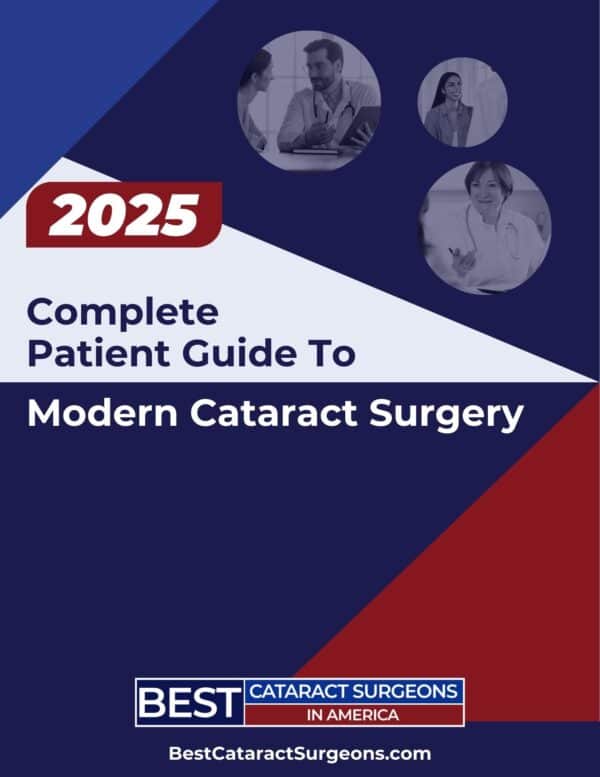When you shop for a new car, a new house, or a new television… how much research do you do? Most people at least look at a few different options, get a sense of what price they should expect to pay, and have an idea of what sort of quality to expect. If you’re shopping for a television, are you going to get HD, UHD, 4K, etc?
Well… is television more valuable than your eyesight?
Surprisingly… Most people don’t do as much research for a procedure that will impact their eyesight for the rest of their lives as they do when shopping for a television. One of the reasons for this is because there aren’t a lot of great sources of information on how to shop for a great surgeon.
That’s why we’re here to help 😀
In this section we’re going to arm you with all the information you’ll need & a list of questions you should have ready to ask any doctor you’re considering to allow perform surgery on your eyes.
It’s Time To Go Shopping For A Surgeon.
Be An Educated Consumer.

There are a lot of doctors who do cataract surgery… how are you supposed to know who’s good or not good? How are you supposed to know who’s up-to-date and who’s using surgical techniques from 30 years ago? How do you know which practices are cutting corners to reduce costs in the face of pressure from insurance companies?
We’re going to give you a detailed guide of the top things to look for in a cataract surgeon and his/her practice. If you read this article, you’ll be making your best investment ever in the future of your vision.
(Note: If you haven’t read about “The Basics” of cataract surgery. That might be a good starting point to read over before you read further in this section.)
#1. Avoid The “Jack Of All Trades, Master Of None”

Find a cataract surgeon who is truly a specialist in cataract surgery.
Over the past 20 years, there have been so many advancements in cataract surgery — These include advances in lens implant technology, surgical microscopes, and laser-assisted cataract surgery. The only way for a surgeon to truly be up-to-date in modern cataract surgery is to spend a lot of their time focused on it. It’s simply not possible for a doctor who spends a significant portion of his or her time doing other things to be able to provide the highest level of care in cataract surgery.
If you see in a surgeon’s biography that they spend their time focused on eyelid surgery, neuro-ophthalmology, or management of retinal diseases, such as injections for macular degeneration, consider how much they really are specialized in modern cataract surgery.
It’s true that most cataract surgeons care for patients with many types of eye conditions other than cataracts (and it’s a good thing for your surgeon to be well-rounded) … however, if a surgeon isn’t devoting at least 10-15 hours per week on their cataract practice, then they are unlikely to truly be specialized in it.
Question to ask your doctor:
How much of your practice is devoted to cataract surgery versus other aspects of ophthalmology & eye care?
#2. Find A Surgeon Who Does A Lot Of Cataract Surgery

We admit… This is similar to #1… but there are some key differences. The point is that a surgeon who does a lot of cataract surgery is more likely to be a specialist in cataract surgery, than one who doesn’t do that many surgeries.
Cataract surgery is a very delicate micro-surgical procedure. Think about any hobby that requires fine technique – for example, playing golf or a musical instrument. There’s a reason that the best golfers and musicians practice for many more hours than amateurs. A surgeon who does 10-20 cataract surgeries per month is unlikely to be as sharp as one who does 50-100 surgeries per month. All other things equal… you’re likely better off with the surgeon who does more.
How many surgeries per year is enough? Well… In our opinion, 400 surgeries per year is a reasonable cut off. Anyone who is doing less than this many is unlikely to be an expert surgeon. [The only exception that we can think of to this rule would be if an exceptional surgery recently relocated and started or joined a new practice.]
How many are too many? You don’t need a surgeon who does 2,500 or more cases per year. While some expert surgeons who are truly specialized can do this many surgeries comfortably, at some point it may become more difficult to provide each patient with the amount of individual attention necessary. While we wouldn’t consider any specific number of surgeries to be ‘too many’… what’s most important is that your surgeon gives you the amount of time that you need.
Question to ask your doctor:
How many cataract surgeries do you do per year?
#3. Cataract Surgery Is Not One-Size-Fits-All

Modern cataract surgery is not a one-size-fits-all procedure. There are many different lens implants and surgical techniques that can customize your surgery to best suit your eyes and your lifestyle.
Understand that the main reason that most people’s glasses prescription changes after the age of 50, is due to the growth of their cataracts. As the natural lens inside your eye develops into a cataract, it grows and changes shape. When this natural lens changes shape, its prescription changes.
Once your natural lens is replaced with an implant that no longer can change shape, your prescription should be quite stable for the rest of your life. That means… If your cataract surgery is able to make you free from glasses… there’s a very good chance you’ll be free from glasses for the rest of your life! Your surgeon should customize your surgery & lens implant choice to your lifestyle and vision goals.
There are many subtleties to choosing the right lens implant and surgical technique for any individual patient, and they are based upon the unique characteristics of your eyes and your lifestyle.
It is important that your surgeon takes the time to review the lens implant options available to you as part of a discussion about your activities, lifestyle & vision goals.
Question to ask your doctor:
Do you use the same lens implant for every patient? Or are you able to customize my cataract surgery to my eyes based on my vision goals?
#4. How Often Does Your Surgeon Treat Astigmatism?

Treating “astigmatism” is one of the most important aspects of ‘Modern Cataract Surgery’. Almost everyone has at least some amount of “astigmatism” in their cornea that requires treatment to get the full benefit of modern cataract surgery.
“Astigmatism” means that your cornea is not perfectly spherical in shape. Our cornea is like a natural glasses lens on the front of our eye. Unlike a perfectly spherical or ‘round’ lens made in a laboratory or factory, our natural cornea can have areas that are a little be steeper or flatter than others, and this irregularity can cause blurry vision if not corrected.
If you’d like to get the full benefit from modern cataract surgery then your surgeon must manage your astigmatism.
Surgery can still be done using older techniques which do not treat your astigmatism. If you choose to have this older surgical technique of “Basic Cataract Surgery”, then you should expect to need bifocals or trifocals after your surgery to correct your vision at all ranges.
Some surgeons only treat astigmatism a small percentage of the time… such as less than 10% of the time.
Other cataract surgeons more experienced with modern techniques may do it 80-90% of the time.
So while it’s important that your surgeon does a lot of cataract surgery… it’s even more important that your surgeon does a lot of high quality, modern cataract surgery.
Quality is even more important than quantity when it comes to your surgeon’s experience and type of practice!
Question to ask your doctor:
In what percentage of your cataract surgery cases do you treat astigmatism? Or what percentage of your cases are “Modern Cataract Surgery” versus “Basic Cataract Surgery”?
#5. How Often Does Your Surgeon Treat Presbyopia?

Did you know that you have the ability to get rid of your reading glasses or bifocals after cataract surgery?
When we reach the age of around 50, the natural lens inside the eye starts to stiffen. When we’re younger, this natural lens is flexible. Its ability to flex allows it to change shape so that we can see both far away and up close without needing bifocals or reading glasses. When this lens stiffens, we lose this range of focus or “depth of focus” ability.
With modern cataract surgery there are ways to restore our ability to see both far away and up close without needing reading glasses or bifocals. The two main ways this is done is with 1.) Monovision / “Blended Vision” or 2.) a Multifocal lens implant. You can read more about these options in our “Cataracts 101” section.
Planning for your ability to read after cataract surgery without glasses is something every patient should consider. For patients who have been nearsighted their entire life, it can be surprising to lose this ability to see up close after cataract surgery. Every single patient having cataract surgery should be aware their options and have a discussion about this with their surgeon.
The technology in these area changes rapidly… which is another reason that you should make sure your cataract surgery remains up-to-date on the latest lens implants and other technology.
Question to ask yourself!:
How often do you treat presbyopia with monovision or multifocal implants? (Note: In our opinion most expert cataract surgeons should be performing at least 20% of their cases in this way to achieve some amount of freedom from reading glasses or computer range glasses for their patients.)
#6. It Takes A Village

To paraphrase from a famous quote: “It takes a village… to do modern cataract surgery.”
What we mean by this: There’s more to getting a high quality outcome from your cataract surgery than just your surgeon.
It takes an entire dedicated team of many, many people to deliver high quality modern cataract surgery outcomes.
From the front desk staff who answer the phones, schedule appointments, and greet you when you arrive at the office…. To the technicians who take your medical history and perform the basic measurements… to the counselors who guide you through the scheduling, insurance, and financing process… to the surgical center staff who gets you ready for surgery… to the operating room team who performs this highly technical modern-miracle of a procedure… to the optometrists who often provide much of the routine pre-operative & post-operative care… A team is only as strong as its weakest link!
Your surgeon is the captain of this team, and all of these aspects are a reflection of your surgeon’s ability and dedication to delivering high quality care for you and your eyes.
Question to ask yourself!:
Does the overall atmosphere and each step of the process feel consistent with achieving a high quality outcome for my vision?
Summary.
At this point you’re equipped with the right information to identify a surgeon who you can trust your eyes with. Remember… this information is only helpful if you use it! Now that you know what to look for in a surgery, it’s time to check out our Directory to find a “Best Cataract Surgeon” near you. 😀

